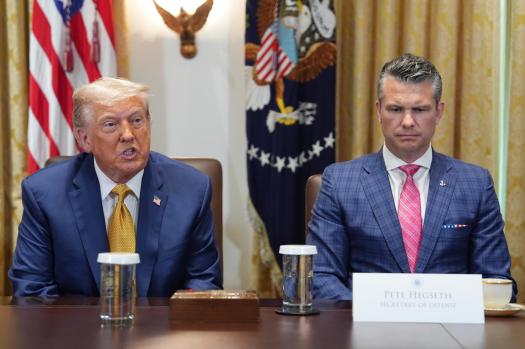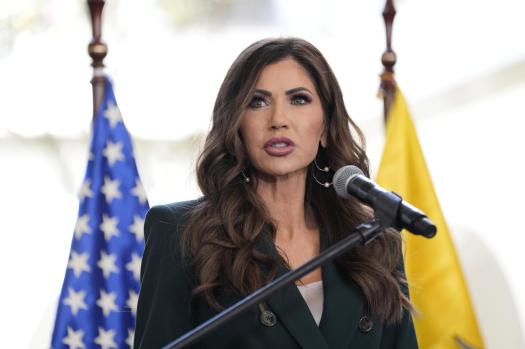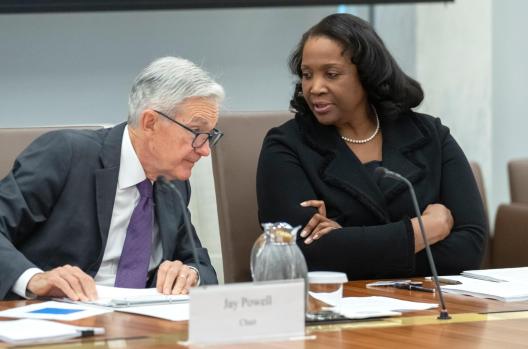By Tara Copp, AAMER MADHANI, and SEUNG MIN KIM, Associated Press
WASHINGTON (AP) — According to three people familiar with the situation, President Donald Trump privately expressed his displeasure with Pentagon officials for announcing a halt in some deliveries last week, a move he felt was not properly coordinated with the White House. This prompted Trump to decide to send more defensive weapons to Ukraine.
The Pentagon warned last week that it will withhold some precision-guided artillery, air defense missiles, and other weaponry promised to Ukraine due to what U.S. officials claimed were shortages in American stocks. Trump essentially reversed the move on Monday when he stated that the United States will need to deploy more weaponry to Ukraine.
There was significant internal resistance among Pentagon brass to the delay organized by Pentagon policy head Elbridge Colby before to its announcement, according to two persons who spoke about the private internal conversations on condition of anonymity.
According to one of the people, the statement caught Trump off guard.
The halt in vital arms supplies had occurred at a time when Ukraine was already struggling due to Russia’s more intense and sophisticated airstrikes throughout the conflict, which has been going on for more than three years. When he announced the reversal on Monday night, Trump admitted that they must be able to protect themselves. They are currently being severely impacted.
During his meeting with his Cabinet on Tuesday, Trump reacted angrily to a question posed by a reporter who authorized the stop. I’m not sure. Would you mind telling me?
Related Articles
-
Supreme Court clears the way for Trump s plans to downsize the federal workforce
-
Trump administration pulls back on plans to rewrite Biden-era asbestos ban
-
Noem says first responders in Texas still looking for a lot of little girls missing after flood
-
Trump Media files for Crypto Blue Chip ETF with SEC
-
A look at the countries that received Trump s tariff letters
The president also attacked Russian President Vladimir Putin, claiming that he was needlessly extending the conflict that Trump has stated he is committed to ending as soon as possible. Trump has had trouble reaching an agreement, and negotiations have halted.
In recent days, the Republican leader has sounded more and more frustrated with Putin. Last week, the two had a phone conversation.
During Tuesday’s Cabinet meeting, Trump stated, “If you want to know the truth, we get a lot of bull-thrown at us by Putin.” Despite his constant kindness, it turns out to be pointless.
In an attempt to pressure Putin into peace negotiations, he has threatened but refrained from enacting fresh penalties against Russia’s oil sector.
Last week, Sen. Lindsey Graham, R-S.C., stated that Trump had authorized him to proceed with a measure he is co-sponsoring that, among other things, calls for a 500% tariff on items imported from nations that still purchase Russian oil. China and India, two powerful economies that purchase Russian oil, would be greatly affected by the action.
Trump stated on Tuesday that he is giving it careful consideration.
US lawmakers, the State Department, Ukrainian officials, and other allies were caught off guard by the weapons pause announced last week, which affected shipments of Patriot missiles, precision-guided GMLRS, Hellfire missiles, and Howitzer rounds, among other weapons.
In response to Trump’s directive, the Pentagon announced late Monday that it would resume sending weaponry to Ukraine so that the Ukrainian people may protect themselves as we seek a durable peace and put an end to the carnage. However, as part of America First defense policies, spokesperson Sean Parnell emphasized that the review is still ongoing for Trump to assess military supplies around the world.
A request for comment on whether Defense Secretary Pete Hegseth conferred with the White House before halting weapons supplies and whether those shipments have since restarted was not immediately answered by the Pentagon.
Although Trump stated that the United States will mostly be providing Ukraine with defensive weapons, it is still unknown what kind of weapons will now be deployed.
According to a U.S. official, Pentagon leadership was still receiving updates on the stockpiles of certain munitions from each of the services and the combatant commands, the multiservice groups that lead U.S. military operations globally, on Tuesday.
According to the official, they are still performing the calculations.
According to the official, the information was displayed on a stoplight chart with munitions in red, yellow, or green status, resembling slides made the previous week. According to the findings of that earlier study, some munitions could be sent to Ukraine indefinitely, while others were reaching alarming quantities.
According to the official, it takes time to fully understand the quantity of actual munitions on hand because, for instance, Patriot missiles are originally Army property, but the service loses track of those numbers in inventory once they are requested and sent to a combatant command, like U.S. Central Command.
The Army, which has kept a careful eye on supplies in recent years, has withdrawn the great bulk of the munitions and equipment the U.S. has sent to Ukraine, especially for in-demand items like Patriot missiles for air defenses and 155mm artillery shells.
The Army has found it more difficult than anticipated to increase production of those items: By the end of 2025, it aimed to produce 100,000 155mm shells per month, but it won’t be able to do so until 2026, according to Army spokesperson Steve Warren.
According to Warren, increasing the manufacture of Patriot missiles has also been difficult.
Sen. Mitch McConnell, R-Ky., expressed his satisfaction with Trump’s decision to resume shipments to Ukraine in a statement on Tuesday.
According to McConnell, the President will have to turn down requests from his Administration’s isolationists and restrainers to restrict these delivery to defensive weaponry this time. And he should ignore those at DoD who refuse to make significant investments in increasing munitions production while using the excuse of weapons shortages to prevent aid.
This item was written by Lisa Mascaro and Matthew Lee of the Associated Press.












